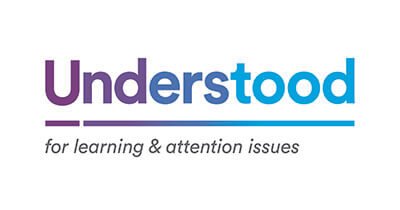How to Get Support for Common Problems in College
 College can be challenging. And it's completely normal for students with disabilities to run into a rough patch at some point. If you have a learning and attention issue like dyslexia or ADHD, figuring out where to get support can take some work.
College can be challenging. And it's completely normal for students with disabilities to run into a rough patch at some point. If you have a learning and attention issue like dyslexia or ADHD, figuring out where to get support can take some work.
Unlike public high schools, colleges don't fall under the Individuals with Disabilities Education Act. That's why there are no individualized education programs (IEPs). In college, you may not get the same level of support and services as what you might have gotten in high school.
The good news is that college students with disabilities are protected under Section 504 of the Rehabilitation Act, so you can still get accommodations. And there are resources on campus to help, especially the college's Office of Disability Services. However, you have to be proactive and ask for help.
Here's how to get support for common problems in college.
- General Academic Questions
Having issues with selecting classes or understanding what you need to take for your degree? A good place to go is your academic advisor and the Office of Disability Services. They can connect you to the right person to answer questions and concerns.
They can also help you find tutoring services as well as other information to help resolve classroom-related issues. In fact, it's a good idea to check in with an academic advisor once a semester just to stay on top of things.
- Trouble Keeping Up in Class
It's not uncommon for college students to have trouble with challenging academic classes. If you need help in a class or want to talk over one of your college accommodations, it may be a good idea to reach out to the instructor.
The sooner you speak up, the better. That way, there will be time to turn things around if you're struggling. You can meet during office hours, or you can email the instructor to set up a time to talk. The key is to make a list of questions and concerns in advance so the meeting will be productive. The instructor might offer advice for studying and taking notes or offer different ways to approach the material covered in class. But if you aren't getting the help you need from the instructor, then you may need to take other steps.
- Trouble With a Professor or Class Accommodations
If a classroom instructor won't let you use an accommodation that you are entitled to, that's a serious problem. If you run into this, you should contact the Office of Disability Services. You can also reach out to Disability Services if you need another accommodation but can't figure out how to get it.
It's important to be specific with Disability Services about the trouble you're having. It could be that the professor doesn't understand how the accommodation works. Or, it could be that the college accommodation works differently than it did in high school. Giving Disability Services as much information as you can will make it easier for them to help you.
- Medication and Other Health Needs
Many students with disabilities have health needs. For example, if you have ADHD, you might be taking ADHD medication.
When you feel sick or have questions about medication, University Health Services can help. As with counseling, health services are confidential, as long as a student's life isn't in immediate danger. If you have any questions about medication, illnesses, or any health-related concerns, don't feel embarrassed. There are medical practitioners available who can answer your questions and help you in a nonjudgmental way.
About the Writers
Developed in collaboration with 14 nonprofit partners, Understood.org is a free resource and community supporting parents of the 1 in 5 kids with learning and attention issues. Understood empowers millions of parents through personalized resources, daily access to experts, interactive tools and a supportive online and on-the-ground community. Winner of the 2015 Webby Award for Best Family/Parenting Site and the 2016 Cynopsis Award for Best Branded Digital Platform, Understood is the flagship program of the National Center for Learning Disabilities (NCLD). For more information and resources, visit Understood.org.